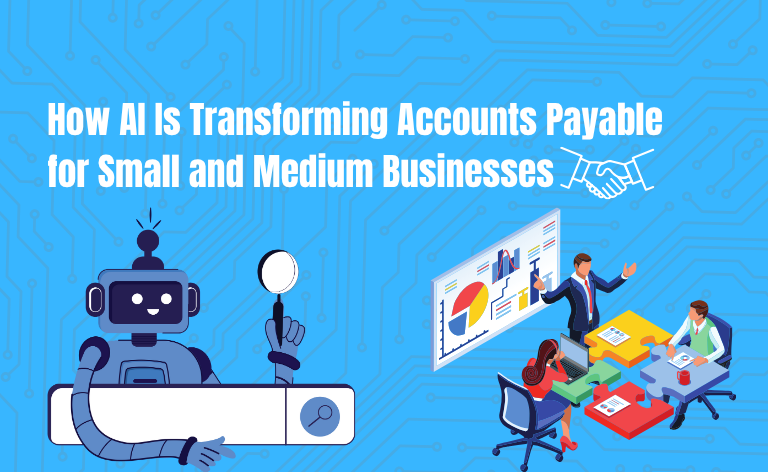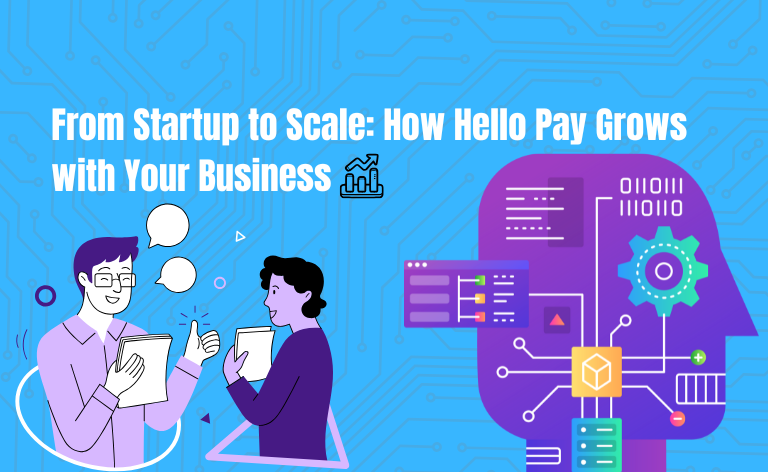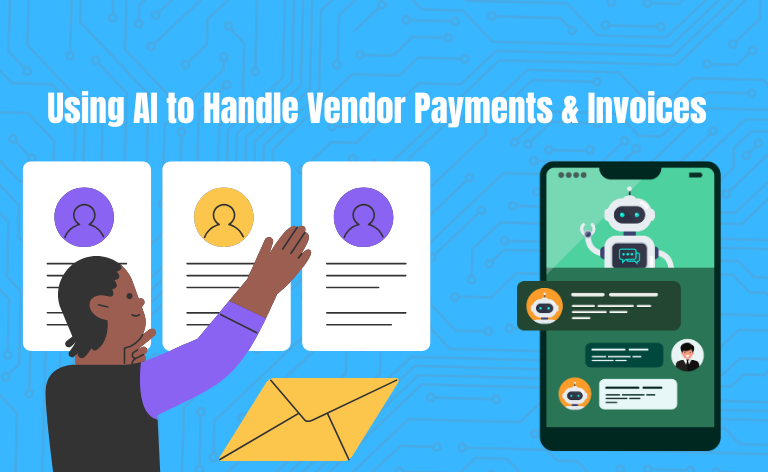Presenting the Accounts Payable in SMBs
Accounts payable (AP) is the amount of money that a business owes its suppliers in response to goods and services. In the case of small and medium businesses (SMBs), vendor payments can be an important aspect of supplier relations and cash flow especially when managed successfully and in a correct way.
Nevertheless, the majority of SMBs continue to operate using manual processes that induce delays and other forms of errors unnecessarily. Manual data entry results in lost invoices and missed payments, and is also more susceptible to fraud. Moreover, financial compliances are also harder to maintain in the absence of an organized, automatized manual.
These issues are resolved by AP automation for small businesses, which streamlines vendor payments and digitizes invoice processing. SMBs are discovering that intelligent, scalable accounts payable software is essential to effective small business operations and long-term growth as finance automation becomes more widely available.
What Is AI about Finance?
AI in accounts payable refers to the use of artificial intelligence technologies to automate and optimize financial workflows. With AI, Fintech eases the workload of monotonous activities through data processing before making timely decisions and identifying trends.
It is common to find that AI systems incorporate machine learning (which becomes more accurate with time), optical character recognition (OCR) to scan the information in the invoice and natural language processing to interpret and classify the financial documents. Robotic process automation (RPA) is another instrumental tool that simulates mimicking repetitive human task processes across systems.
The mentioned tools are the foundation of the finance automation process that enables SMBs to save money, avoid fraud, and increase efficiency. The benefits of AI in accounting are now within reach for smaller firms, thanks to smart tools that scale with business needs and integrate seamlessly with vendor payments systems.
Accounts Payable AI Applications
Artificial intelligence is making changes in accounts payable within small businesses thanks to the automation of crucial payment cycle tasks. The following are the best real-world applications:
- OCR and machine learning facilitated the scanning of invoices and their data extraction, which accelerates the capture of data and automates the manual one.
- The precision of the invoice matching is guaranteed by means of linking invoices with purchase orders and receipts by means of automated invoice matching.
- The presence of AI allows for finding fraud and anomalies, and warning of duplicate invoices or suspicious activity by vendors instantly.
- The AI-driven payment scheduling tools help to streamline cash flow according to the due dates, the terms of vendors, and depending on the predicted budget.
- Automated supplier onboarding checks the validity of supplier information and supplier compliance with laws and regulations, reducing the administration of the procurement and payment of suppliers.
The AI-driven workflows decrease human labor, the number of mistakes, and give SMBs the flexibility to grow. Investing in accounts payable software with built-in AI capabilities gives businesses a competitive edge in small business operations and procurement.
Advantages of AI-Driven AP to SMBs
Implementing AI in accounts payable delivers measurable value for small and medium-sized businesses. The main benefits are the following:
- Time: AI speeds up the working process with invoices, leaving teams time to work on the strategic issues of finance.
- Cost reductions: AP automation for small businesses eliminates paper-based processes, late fees, and unnecessary labor costs.
- Better accuracy: AI reduces inaccuracy in enabling data entry, makes the right payments, and helps in financial regulations.
- Improved decisions: SMBs can use real-time analytics and insights driven by artificial intelligence to control the relationship with their vendors and predict their cash position.
- Scalability: Automatic systems make scalability possible; organizations do not have to hire more employees when they grow.
SMBs can revamp their back-office operations, lower operational friction and keep pace in the present fast-paced digital economy with the help of AI-based finance automation.
Real-life or Case studies
Many small businesses are already reaping the benefits of AI in accounts payable. As an example, an Indian retail start-up realized that by using AI invoice processing they could relieve the manual workload by 70 percent, and achieve more accurate cash flows within two months.
Global platforms like Tipalti, Stampli, and Zoho Books offer robust AP automation for small businesses, streamlining everything from invoice matching to fraud detection.
A logistics company using AI-powered accounts payable software integrated with its ERP system saw faster approvals and near-zero late payments. These are success stories of how automation of finance changes the nature of small business operations thus it makes them flexible and more resilient.
Issues and Concerns
As much as AI has apparent benefits, SMBs ought to be wary of the challenges that may arise in the process of implementation.
- Upfront costs: Investing in AI-driven accounts payable software may require initial budget allocation, though ROI is typically fast.
- Data protection and security: The companies should mandate the storing of the vendor payment information and invoice records adequately and that they are headed by the local laws.
- Change management: AI in accounting needs flexible work processes and the training of personnel, especially the team that has not dealt with automation of financial operations before.
Nevertheless, SMBs are trying to make the most out of the AI-enabled AP automation and achieve sustainable business value, which is possible with the proper approach and the choice of tools.
What is the Process of AP AI Initiation?
Adopting AI in accounts payable starts with a clear plan and smart tool selection:
Evaluate Readiness
- Review your current AP cycle: the volume of invoices, error rate, and headcount.
- Identify high-volume or repetitive tasks ripe for AP automation for small businesses.
Select AI Amicable tools
- Seek platforms that have automated vendor invoices, fraud detection, and simple integration.
- Bank on a solution that is fit to your size, industry, and budget.
Facilitate Flawless Integrating
- Assure that it is compatible with your accounting tools (QuickBooks, Xero, SAP).
- Perform interoperation seamlessly so as not to interfere with the current operations and the integrity of data.
Through these measures, SMBs will be able to initiate finance automation with little to no risks and advance the business of small enterprises.
An SMB Finance Look at AI in the Future
Intelligent AI and more interactive engagements will characterize the future of SMBs as far as finance automation is concerned:
- Generative AI will help to write payment memos, correspond with vendors, and comment.
- Speaker-driven finance assistants will allow querying and accepting invoices without hands.
- Predictive cash flow management will help to predict the incoming and outgoing payments with substantial accuracy.


